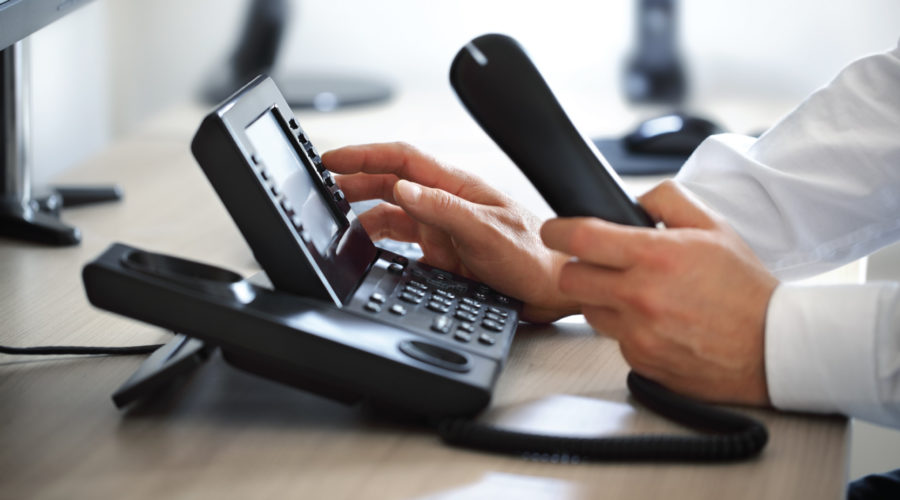IT Hospitality hosted a discussion with John Owen, CEO Tiger TMS and Kees van Donk, Director Hospitality EMEA NEC Unified Solutions during the #AfricaTomorrow virtual conference on 21st July organized by Bench Events. During the LIVE panel session a number of topics related to the future of telephony in the hospitality industry were discussed.
Hotels are mirrors of our modern world. As innovations in technology work their way into everyday life, people begin to expect, and even require, technology as a guest amenity. Sometimes hotels lead the charge for technological advancements, as was the case with indoor plumbing, and sometimes hotels wind up behind the curve, as evidenced by the slow embrace of cordless telephones.
Today’s hotel guests are more discerning than ever before and demand a lot from when it comes to connectivity and telecommunication solutions. In fact, mobile services and 24/7 connectivity are not just a nice-to-haves, they have become one of the top expectations that guests have and cite as a major driver of their satisfaction.
The reality facing the hospitality industry today is one where guests have immediate and constant access to their cell phones, giving them tremendous flexibility beyond the hotel telecommunication system to stay connected. Given that fact, properties must make significant efforts to stay current and competitive when it comes to data, video, and phone services. Staff are also more mobile; being able to always contact an employee no matter where they are throughout the property can also help to improve customer service.
Hotel phone systems that give guests additional value and boost customer service as well as streamline connectivity among staff to operate more efficiently helps set certain properties apart in this highly competitive industry.
A hotel phone system is not that much different than your average business telephone network. The key differences arise when you start to look at the features available for hotel phone systems and how they expand beyond the provision of a simple telephone handset.
In the hospitality sector, hotel telephone systems can use specially designed handsets to be used in guest rooms. These handsets have a limited set of features and only allow internal calls.
Many phone systems within the hotel industry today will either use PBX or VoIP technology. A PBX system is a more traditional telephone solution and they are thought to be more reliable, but costs can soon add up.
“A hotel phone system that’s most effective is one that helps you reduce costs and increase your customer satisfaction” according to Kees van Donk, Director Hospitality EMEA NEC Unified Solutions.
A hotel phone system that is most effective is one that helps you reduce costs and increase your customer satisfaction. Here are ten must-have phone features for the hospitality industry:
1. Auto-attendant. Hotels can rely on the auto attendant function to handle the bulk of guest inquiries. With programmable options and menu branches, an auto attendant function can help answer questions, manage requests and most of all, keep phone lines from being tied up with basic questions. This way, you can ensure potential clients get addressed and existing customers are served quickly and efficiently.
2. Room extensions. Extension calling can match room numbers up to four digits in some phone systems so that it is easier to use. Programming numbers for one-touch services so that a guest can connect to the front desk, concierge, housekeeping, or restaurant with a single number from inside the room keeps things simple and direct.
3. DECT handsets. Keeping your staff connected through integrated Wi-Fi or Digital Enhanced Cordless Communication (DECT) phones always allows them to stay mobile and accessible throughout the building. This enables them to provide better and faster service no matter the request.
4. Voicemail. Nowadays, most hotels are expected to provide an integrated voice messaging system for their guests so they can receive calls and messages even when no operator is available. Guests may also want to be notified with this voicemail system of text messages or faxes at the front desk and messages can show on the room phone with an indicator light. Staff can also use this to improve efficiency and leave detailed messages that can be retrieved at different times in the day — which is helpful for shift changes and handoffs.
5. Call accounting. Call accounting systems enables properties to resell telecommunications services to guestrooms, meeting rooms, event spaces and other common areas. This feature allows the property to bill guests and track calls, generate real-time reports on how the phone system was accessed so that the property management system can print detailed statements to assist in ease of check-out.
6. Unified messaging. Think of it as a universal mailbox. Voicemail and email can interact with unified messaging so that your guest can retrieve voicemail through their inbox and vice versa. This is becoming more common with VoIP solutions.
7. Direct Inward Dial (DID). Outside callers can call an extension at the property directly without going through an operator or automated attended. This eliminates the need to have a dedicated trunk line for each extension.
8. Music on hold. Studies show that music on hold keeps callers in a better frame of mind. This is also an opportunity for hotels to play promotional messages for callers and to highlight special features.
9. Video and audio conferencing. While previously only the domain of business travelers, now, video and audio-conferencing call functions are desired by leisure travelers too so they can stay connected to family and friends.
10. Wake-up programming. Critically important for an Airport Hotel (do not miss your flight !!) as well as for hotels, who receive Group-Business.


